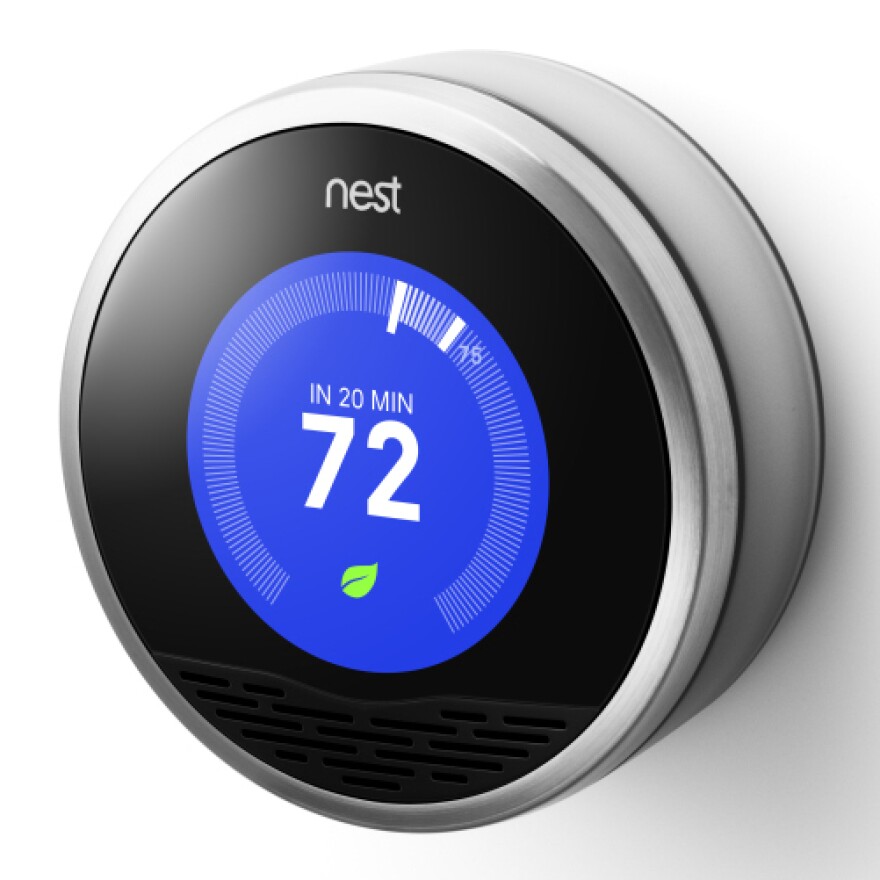Computer chips and technology are invading all sorts of previously dumb devices. Phones are now smart. Cars are becoming connected computers on wheels. Call it the computerization of everything. But how we interact with these machines is bound to evolve.
At this year's Consumer Electronics Show in Las Vegas, touch pads are everywhere — in phones, in tablets and laptop screens. And Brad Feld has had enough.
"The whole idea that it is socially acceptable or functionally acceptable to have a whole mass of humanity that is staring down at a piece of glass and pounding on it with their thumbs is kind of absurd," says Feld, a venture capitalist at the Foundry Group. His firm is investing aggressively in startups that are creating new ways for humans and computers to interact.
"Twenty years from now the way we interact with computing will be unrecognizable to us today," he says.

But judging from the displays at CES, the touch pad craze hasn't crested — yet. Just inside Microsoft's enormous booth here there's a giant touch pad the size of a tabletop. It looks like the love child of an iPad and a flat-screen TV.
But Microsoft's Steve Clayton says it's a little bit different. This table doesn't just respond to touch, he says, it's actually watching us, paying attention to where we are — where we're standing.
"If I click on one of these images or I tap on one, the image rotates to me," Clayton explains. "This device can see, it can see the orientation of my finger and it can present the image towards me."
More and more computers are doing just that — paying attention, watching and listening to us.
Microsoft's Kinect responds to gestures. Apple's Siri listens to our voice. And observant little machines are popping up in places you might not expect.

Matt Rodgers is a founder at Nest, which has developed what it calls the first "learning thermostat." It observes patterns in your house, then programs itself.
"Use it like any non-programmable thermostat. Turn it up, turn it down and make yourself comfortable and Nest will learn your patterns," Rodgers says.
If you turn up the heat and then leave the house, Nest has sensors that will notice you are out and turn the heat down. You end up programming the computer inside this thermostat without even realizing you've done it.
John Underkoffler envisions a day where machines all around us that respond to how we move and what we want. He's best known as the brains behind the futuristic computers in Steven Spielberg's film Minority Report.
Spielberg didn't want Tom Cruise to mess around with keyboards or touch screens in a film set in the future.
"When I proposed to Steven that it could be a gestural interface that it could be body centered — human centered — and that you could literally point at the screens and command the pixels and sift data using your hands at a distance. I think Steven loved that idea," Underkoffler says.
So, in the 2002 film, Cruise stands in front of a screen and conducts his computer like Mickey Mouse in Fantasia.
Underkoffler built a working model at MIT and after the movie he refined it and started a company called Oblong. The full Oblong system can cost up to half a million dollars, but eventually he hopes it will control all sorts of machines "like laptops and desktops, but also computers that you don't think about — the front of your microwave oven, the dashboard of your car, the TV set in your living room."
And Oblong executives at CES this week say they see more and more signs that this transformation is on its way.
Copyright 2020 NPR. To see more, visit https://www.npr.org.


